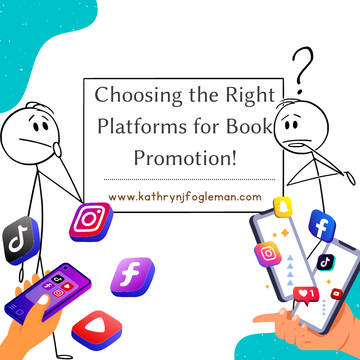 In the magical kingdom of book promotion, social media serves as the enchanted gateway to connect authors with their readers. However, with a plethora of platforms to choose from, it's crucial to identify the right ones that align with your book and your audience. So, grab your quill, fellow wordsmiths, as we embark on a journey to discover which social media realms are worth exploring for effective book promotion.
In the vast realm of social media, each platform offers a unique portal to connect with readers and showcase the magic of your literary creation. The key lies in choosing platforms that align with your book's personality and where your target readers dwell. So, fellow wordsmiths, cast your promotional spells wisely, and watch as your book takes flight on the wings of social media magic! Recommended booksBelow are two amazing books I recommend you read to improve your marketing skills! Here's the part where I tell you that these are AMAZON AFFILIATE LINKS. So, when you click one of these links below and purchase something, not only do you support the person who created it, but I get a small commission that helps me pay the bills!
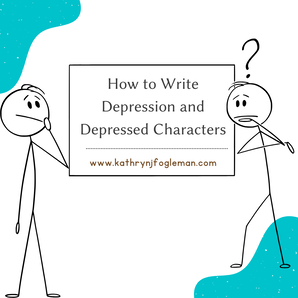
Depression is generally invisible. It also doesn’t just happen overnight, most of the time. It usually takes years of build up. Outwardly, someone may be functioning very well, but inwardly, they are getting more and more tired and weighed down and hopeless. They usually don’t understand why, and they usually don’t think “I must be depressed”, and they very rarely go get help. In fact, they may even be thinking “I just don’t sleep like I used to. I just don’t have energy anymore. It must be all this stress, or my kids keeping me up, or I’m just getting older and things are changing. I just need to get my crap together and do better.” so they eat better, go to the gym, adjust their sleep schedule, or try to power through it all as they maintain the same patterns and habits.
So, if you’re an author trying to write a character who is depressed for reasons other than a crazy dragon burning down their village and killing all their family, how do you write what’s invisible? Don’t immediately jump to making your character want to commit suicide! While suicidal thoughts are a sign of depression, it’s not the only sign.
There are nine signs of depression, and for a doctor to diagnose you or me with depression, there must be 5 of those 9 signs that need to have been present for at least a couple of weeks. I use these to write depression in one of my characters.
Now, like I said, don’t be a slacker and immediately make your character want to take a quick trip off a bridge, AND don’t make your character have all the symptoms. Depression is a complex thing happening to a unique person, taking weeks or years to break them down, and it should be respected as such, even in our writing and storytelling.
When writing a depressed character, take a step back and look at the events that have made them depressed over a period of time.
Remember, depression takes time to build up, and it takes time to break down. It wasn’t created overnight, and it won’t be cured overnight either. So, don’t throw a “cure” at your character and immediately make them better by the end of the story. They should absolutely be on the road to getting better by the end of the story, but there is no quick cure to depression. Even if all of their problems were to fade away and all their dead loved ones were to resurrect and be in perfect health, they would still have to work to heal their brain from the damage that depression has caused. Even the Bible says at the end of all things when God creates the new heaven and new earth He will still have to wipe some tears away (Revelation 21:4). Yes, there won’t always be crying or mourning or pain. Those will go away. They won’t last… just like depression doesn’t last forever, especially once we get help.
September is Suicide Awareness Month. September 10th is Suicide Prevention Day. If you would like to quietly bring awareness to this growing issue in our society, and lovingly remind people that there is a better way to overcome their struggles and mental health without judgment, then there are tons of ways to share hope. I will link a few items below using my Amazon Affiliate Link. So, if you click on the images and purchase any of the items below, you will be helping the artists/authors who created it AND help me pay a few bills at the same time. ☻ There are also some great books that I highly recommend reading to learn more about depression, how it affects the brain, and how to start healing from it - whether you think you are depressed or not, I recommend reading (or listening!) to these books. They are also Amazon Affiliate links. If you are someone who struggles with depression, know that you are not alone. You are loved. You matter. You are precious. There is hope. There is help. You were never made to do this alone. Please talk to someone who will listen and help. ♥ Suicide Awareness & PreventionBooks I Recommend You Read or Listen To!
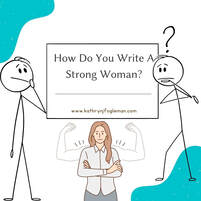
In books and movies lately, we’ve mostly seen one type of strong female character — the ass-kicking kind. This has led to a slew of characters who are often one dimensional and less interesting than their side-characters (Legend of Korra, I am looking at YOU). Black Widow and Wonder Woman are cool, but women can and are strong in other ways. They don't all have to be martial artists. Some can sit at their computer late at night and write blog posts...
Many agents and publishers will claim they are searching for "strong female characters". However, I encourage authors to avoid using that term, especially in queries, as it has become kinda toxic. I mean, people never need to include the word “strong” to describe a male character, so why should we include it for a woman? Instead, SHOW us how strong your heroine is without actually using that word. (Here's the part where I tell you that some of the following links are Amazon Affiliate links. If you purchase something through my link, I get a small commission which helps me pay the bills) We didn't need to be told thatJane Eyre was strong. We watched her go through trauma after trauma and come out of it again, always determined to be a better person. We didn't need to be told that Scarlett O'Hara was a strong woman. We watched her single-handedly pull her plantation from the brink of destruction. We didn't need to be told that Princess Leia was strong. We saw that in her dialogue, leadership, actions, and choices, all which ultimately led to the rebels beating the empire. What are the traits of a strong woman? She has a big goal. Big, memorable characters have big, memorable goals. It's the author's job to place stumbling blocks and hazards at every turn that make it almost impossible for the characters to achieve their goals. The bigger the goal and the harder it becomes to achieve, the stronger your female character will have to become to achieve it. Learn more about how to write deep character goals here. She has an enemy. This doesn't mean your character has to face a super archnemesis. It can be their own vices, such as addiction, self-sabatoge, mommy/daddy issues, etc. Whatever their adversary is, the meaner and more powerful it is, the better. Your protagonist’s strengths become clearer in the face of conflict and contrast where their ideals are put to the test and their reason for wanting to achieve their goal is truly brought into question. She is flawed. Strong women are not perfect (Remember: disabilities don't count as flaws!) One of the most common problems I see is that the strong female character NEVER messes up. Even when she does mess up, it is always portrayed as an innocent mistake that she can correct and is forgotten, or it was really someone else's fault and she was being the better person and taking the blame. Or, worse yet, her mistake is actually the thing that ends up saving everyone. That is weak storytelling. Strong women in real life make terrible mistakes that have consequence and that haunt them at night for years to come. They screw up and they have big emotions that get out of control - they are not perfect. Thank God! I would feel terrible if every strong woman had her act together and never made any mistakes. She learns. Every strong woman learns from her mistakes and changes so she does not repeat it. That's part of what makes her strong. Some have to repeat the mistake a couple of times more than others, but she ALWAYS learns from it. Don’t skimp on her emotional development. What does she learn? How does she change? How is she a different person now compared to the beginning of the story? She is realistically beautiful. There are lots of different ways to be beautiful. Let your strong female character stand out by giving her physical attributes that mirror the real world. Remember that many women throughout history don't fit our modern definition of "beautiful" and yet have been called beautiful and strong because of their actions and choices (look at many female saints in the Catholic church, for example). She can be a beautiful soul without having a beautiful face, body, or hair. Remember, it's all been done before. To write a character who is more than a walking cliché in heels, it’s important to approach her as someone you are committed to getting to know. Use a list like this to help you write a well-rounded character. If some of her traits feel similar to someone else, that's okay. Remember, we enjoy the familiar. Making her predictable and flawless is the part you should avoid. Let your character surprise you! The best characters sometimes have traits that seem unlikely but are spot on. For example, your character might be an upstanding officer of the law, but is married to a former convict who made her feel special, and she now is secretly plotting to steal someone else's baby after she learns she's barren (have you watched Raising Arizona?). Take time to discover your character’s secrets, don't be scared to let her be imperfect, and you’re more likely to create a well-rounded character. Listen to my podcast episode about strong women!Recommended Books
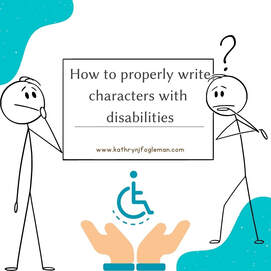
As someone who grew up with family members who had disabilities (dwarfism, blindness, amputation, etc.), and as someone who personally has severe hearing loss and is legally deaf, I often cringe at how people with disabilities are portrayed in books and movies. More often than not, we get no representation, much less proper representation. The kid who rolls onto the scene in a wheelchair with a chip on their shoulder is just... overdone. They are a flat character who gets used for "inspiring" and "tear-jerking" fodder. And they don't represent but a very small minority of those with disabilities.
So, I'm going to give you 6 tips for how to properly represent people with disabilities in your writing and stories. 1. Remember We Are Human As with writing any character, we are a complex human being first. We have strengths, flaws, desires, and struggles just like everyone else. A disability is not our only struggle. We have family dynamics, dreams, hopes, crappy days, good friends, and every other thing that human beings experience, along with the added struggle of a disability and the trials that come with it. Disabled people have lives just like everyone else. Make their struggle complex and realistic, and not focused solely on the disability. Make the story about THEM, not their disability. They are not broken or abnormal, just different, the same way cat and dog people are different and have different struggles. 2. We are not our disability Just because you have long toes or short toes, you don't identify as a long or short toed person. In the same way, we have a disability but our identity is not that disability. That being said, here comes the tricky part: disabilities can affect every part of life, even down to simple acts, but those with a disability don’t even realize all the ways their disability affects them. More often than not, it is just our normal way of life. My great aunt with dwarfism could not reach the sink faucet without a stool, or sit on a normal toilet without steps. However, that did not define her. She was her own person with daily habits that were different from ours. 3. Do Your Research If you want to accurately portray someone with a disability, you have to find out what living with that disability looks like. This means reading and watching things by people who actually have the disability and asking them if it’s okay to interview them. If they agree to be interviewed, listen to their response. They are the expert. Also, not all disabilities involve traumatic experiences that leave someone in a wheelchair or missing an arm or leg, or leaving you deaf, as is my case. The Census Bureau found that 96% of people have an invisible disability. This means you can’t tell a person is disabled just by looking at them. Most don't use a wheelchair! People with invisible disabilities tend to get left out of novels, because they are harder to write, but they are literally the more common in the disabled world. 4. Stop "Curing" Us! It sure would be nice if a fairy godmother could bippity-boppity-boop us into being "normal". But in real life, disabilities are not something that can be overcome. Disabilities aren't something that can usually be cured, or disappear, and people with disabilities don't achieve success "in spite of" their disability. Our disability is something we live with every day, like curly hair (my curly hair people know exactly what I'm talking about, lol). While it can be difficult and frustrating at times, we dust ourselves off and do what needs done to live our life. Also - heads up - there can be good things that come out of disabilities! Either way, the easiest way to avoid "curing" a disabled character is to not make the entire story about the disability. Make it about them, the person. 5. Make The Disability Clear As You Weave It In Many writers want to add a disabled character for some diversity in their story, and that is great! However, many don't specify the disability because they are afraid of getting it wrong. So... the character might as well not be disabled at all. To avoid making your character say it out loud or wear a T-shirt that labels them, illustrate their disability through thoughts, accommodations, and dialogue. Remember, disabilities are not a character flaw. Accommodations can look like a character who sits down every time they have the chance, tilting their head to hear, using devices to open jars, or even special lighting in their room. Again, do your research, ask questions, and practice weaving it into the story you are telling. It's not our identity, but it is a part of our everyday life, so it should be a part of your character's everyday life too. 6. PLEASE Add Humor I’ve never known or met a person with disabilities who didn’t joke about it. We use it as a coping mechanism (some days you've either gotta laugh or you're gonna cry), as an ice breaker, and sometimes we use humor because - come on! - it's funny! Some of us make light-hearted quips about it, and some of us have a darker sense of humor. Whatever kind you are into, humor is a great way to break up your story. If you Google “X disability humor” you’re likely to find a few good jokes. Sift through them and find tasteful ones your character can use. And, as always, don't be afraid to ask the experts (those with the disability) if that joke would be funny or something they would use. Listen to my podcast episode about this topic!Recommended Books
There are lots of great books out there about people with disabilities. Most of them are written for kids, as it's very hard to find any adult books with disabled characters. I'm going to recommend a few that I know are great using some Amazon Affiliate Links. If you purchase one of these books using the links below, you will be supporting me AND the author!
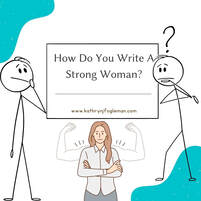
The difference between a synopsis and a blurb is that the synopsis is a brief summary of the major points of a story, while the blurb is a short description of a book and used for promotional purposes.
So, how do you write a synopsis? It's no secret that authors can write hundreds of pages of enthralling story, but can't summarize the story to save their life! Here are 5 tips to help you on your way... BTW, I have listed some affiliate links to helpful books I recommend. If you purchase one of the books, you help me AND the author pay the bills. So, thank you in advance! 1. Keep it to a long brief. The purpose of a synopsis is to give an agent/editor/reviewer a full overlook on how your story starts, carries through, and ends. Yes, that means you give away the ending and plot twists. They want to know exactly where your story is going, and how you’re going to pull it off. With that in mind, it should obviously be longer than the blurb, but no longer than 5 pages. Even if you have a 3 book series you are pitching, your synopsis should be kept between 3-5 pages. 2. Keep your characters interesting. If you're using words like “warrior,” “dragon rider,” or “moody high schooler,” then we need to have a talk... These nouns are fine so long as they are paired with interesting identifiers, such as “knife-obsessed,” “dragon egg thief,” or “reluctant rock collector.” Describing my character as "Keegan is a cynical warrior, orphaned at a young age and adopted by a dragon" doesn't make nearly the impression as "Keegan is the daydreaming Dragon's Son who is terrified of dragons and has eye-rolling disbelief in sincerity or integrity from his fellow man". (Did I just struggle for a solid hour to write that? Yes I did. Do I like it at all? No. No I don't.) Don’t let your character be defined only by their mood, title, enemy, and quest. What makes your character—human or otherwise—unique? How can you work their quirks into a single sentence that explains them? 3. Keep it snappy! Agents don’t need to know that “Keegan woke up from a dream, ate breakfast, woke the boys, got fishing tackle together, and went to the river only to run into a monster” Rather, they’ll need to know that your character “went to the river with the kids for the day, where they were ambushed by a monster”. Yes, you are supposed to explain your entire plot, but don't bore us with endless details. Just the important stuff! Use active voice, keep it interesting, and reveal only the major beats (and read THIS BOOK if you don't know what a beat is). Those reading the synopsis should never be bored; rather, they should be excited. 4. Keep it easy to understand. This is SO important if your story is SciFi or Fantasy. SFF plots can be twisty-turny, character lists can be long, and magic can be overwhelming to explain. Do your best to make it clear, as if you are telling a child the quick version of your story without loosing their interest. Keep it clear. Keep it concise. Remember that your readers aren't dumb, but they don't know your story like you do. They want to be excited about your story, not confused. They want a good reason to read the entire book. 5. Keep it flowing. A synopsis should be an easy, fun read. Does each paragraph make you automatically flow to the next? Does it provide a memorable fact about your characters or plot? Ask yourself these questions to avoid telling versus showing. Keep your synopsis concise, but entertaining. You are a story teller! Tell us the quick story. Apply the same writing style you use in your manuscript. If it helps, write the synopsis like a letter to a friend. I once wrote a synopsis to one of my characters in the story, explaining it in such a way that they would be excited to get to the end, instead of stabbing me to death! However you do it, I recommend you read it out loud to yourself... like, a lot. Make sure it flows smoothly, makes the characters sound fun, explains the plot points clearly, and is exciting.
 "Your writing is so good! You have so much talent!" No. Nope. Writing improves with practice. When I was a teen, I spent time every day writing. Writing on a daily basis means I got a lot of practice, and that daily practice improved my writing. Not talent. When you write every day, your brain learns to think faster and more efficiently, allowing you to put out better writing. Whether you are doing freelance writing, creative writing, or academic writing, they all benefit from writing being a daily habit. A writing routine is hard to set at first, but if you stay consistent, you’ll see improvement. Here are a few daily writing tips you can follow: 1. Put it on your schedule. Put it in your phone, write it on a calendar, make it once a day or twice a day - whatever works - make the time. Scheduling it in makes it easier for you to do every day, and every day you sit your butt down to write, it becomes a stronger, easier habit. If you’re serious about becoming a great writer, your writing time should be treated seriously—and a daily scheduled writing session is the first step in getting into a routine. 2. Create a writing zone. Give yourself a designated writing space or place where you can focus on the task at hand. A distraction-free zone works best, but write where you can be comfortable and productive. If that is on your bed, fine. If it's at your sofa, fine. Table? Fine. Find a space, make sure it is clear and comfortable for you, add some snacks if you need to, put the phone away in another room, and sit down to write for your dedicated amount of time. 3. Set a daily goal. Start your writing goals small. You could set your goal at one page a day, ten pages a day, 500 words a day, or as many words as you can cram on the page in 15 minutes. By giving yourself a page or word count to meet each day, you help set reasonable expectations for yourself and your progress. 4. Consider it a daily habit. Viewing writing as a habit—something ingrained in you that you cannot help but do—can get you into the spirit of writing more often. Whether you’re trying to write a number of words in a single day or get as much on the page as you can in five minutes, just showing up to write every day is enough to build the habit. You could even try blogging or journaling just to get into the practice. It doesn't have to be one specific project. Just write! 5. Do some free-style writing. Sometimes all your brain needs is a little exercise. In "freewriting" you follow the impulses of your mind, allowing thoughts and inspiration to appear on paper. If you find yourself stuck on a writing project, or need inspiration, put your pen to paper (or fingers to keys) and write down whatever words come to mind. Don’t worry about typos, grammar, editing, or rewriting during this process, just write—it’s better than staring at a blank page. 6. Write in the morning time. Kick-start your morning with some writing time— personally, for me, this is easier because my brain has not been bogged down with the events and exhaustion of the day. It is fresh and can focus better, even if I am still a little groggy. I also find it helps me complete a goal for the day and it makes me feel accomplished and productive! 7. Join a writing group. Writing groups or workshops can give you other people to work with and help hold you accountable. A group can keep you writing frequently by giving out writing prompts, assignments, or just good advice. You don’t have to take writing advice given by others, but feedback can inform or inspire you further in your work, keeping you motivated to become a good writer and breaking through any writer’s block or insecurities you might have. I am in, not one, but TWO writing groups. They are a lot of fun (maybe too much fun) and really keep me going. 8. Be fearless. Sometimes the only thing stopping a writer from writing is themselves. Insecurity and a lack of confidence can lead to you procrastinating, which only causes your writing progress to stagnate. When you start writing, keep writing, even if it’s only for 10 minutes. It probably won’t be perfect (or even good if it’s your first time writing), but that’s okay—the more you write, the better you become! Want to Learn More?Do you need help maintaining a writing schedule? Do you not know where to start? Do you want to join a writing group? I'm here to help you. Send me a message! I will schedule a call with you, so we can get you started. 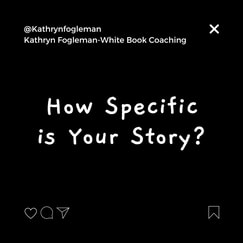
We don’t think in the abstract. If we can’t visualize it, we can’t feel it. Readers love to experience vicariously, and that is achieved with specifics. Every particular MUST pertain to the story. It not only has to tell us something we don’t know, but something we need to know right now.
A universal theme or emotion is only accessible through a very specific story that focuses on how it specifically affects one person. Some specifics that you can and should include are:
The reader already knows what THE world looks like. What they are dying for is a glimpse of YOUR world. How do they get that glimpse?
What is your next step?
Is this overwhelming? Does the idea of being specific, but not TOO specific make your head explode? Do you want to be the author of the next best seller, but fear you won't meet your goals and expectations?
I'm hear to help. You can subscribe HERE and receive access to free PDF books that will walk you through the steps of writing a compelling story with dynamic characters. If you feel like you need more than free resources, my coaching programs can take you from overwhelmed and uncertain, to confident and published! Recommended books!
The images below are Amazon Affiliate links. So, when you purchase a book with those links, I get a small commission, and the author does too!
Just remember, not everybody's going to like your stuff. - F.P. Spirit
The only author who has never received a bad review is an author who has never published a book. All published authors - new or famous, good or bad - have bad reviews. There is always haters out there.
I am one of those very few and fortunate people who are not bothered by bad reviews or mean comments. My mother taught me how to see it as feedback, and if there was nothing that I could apply from it, to mute it in my mind and ignore it. One of my first 3 star reviews on The Dragon's Son talked about how my book was "too much like Lord of the Rings". Okay. Good! That's a compliment to me. Thank you. A 1 star review stated "the author clearly didn't know what the difference between steel and steal was". Okay. I did a word search to see if there was an editing error. There was NOT an error anywhere. So, move along. Clearly the reviewer didn't know what the difference between steel and steal was either... Another 3 star said that, while they liked the book, they didn't understand the point of the "random family" in the middle of the story. Okay. After a quick read from a fresh perspective, I understand that I did next to nothing to show the reader why this "random family" was important to the story. They just existed as a bit of fun and games. So, I needed to rewrite a few chapters (cough-theEntireBook-cough) to make sure that it was clear why this family was important to the main character's story. Granted, reviews can make a big impact on your overall rating on Amazon. You don't want to ignore the impact. That's why you should always assess what the reviews say, and fix what you can. If your book is just truly horrible, admit it! Get some help to make it better (like, from a writing coach or ghost writer). Build a "street team" of people who you give PDF copies to in exchange for honest reviews. Reassess your story with each review/comment/ note from your street team to make it the best book possible. Then, once you are ready to republish it, ask them to leave their final reviews on Amazon to give your book a big, positive push in the rankings! If you generally get good reviews, but have one or two haters who make your average fall to 4 stars or lower, then reach out to friends and family for support. Put the book on sale for them, encourage them to buy it while on sale, and ask them to leave some helpful reviews. That will push the ratings up just a bit to counteract the haters. Also, you can reach out to "Bookish" accounts on Instagram that read books like yours. Offer a couple of them a free or discounted book in exchange for a helpful review. Just as every book will have haters, so every book will also have lovers. You just have to find them, reach out to them, and ask them to support your baby. ♥ Recommended books with bad reviews
The images are Amazon Affiliate links. So, if you purchase one of these books, you'll support the author and I will get a small commission from it!
As a writer, what is your next step?
Is this overwhelming? Does the idea of writing a pager turner sound impossible? Do you want to be the author of the next best seller, but fear you won't meet your goals and expectations?
I'm hear to help. You can subscribe HERE and receive access to several free PDF books that will walk you through the steps of writing a compelling story with dynamic characters, PLUS be the first to get access to special coaching programs!
If you aren't familiar with NaNoWriMo, then you can learn more by clicking the link. National Novel Writing Month is a daunting but straightforward challenge: to write 50,000 words of a novel in 30 days. Since 1999, every year on November 1, hundreds of thousands of people begin to write, determined to end the month with 50,000 words of a brand new novel. They enter the month as elementary school teachers, mechanics, or stay-at-home parents. They leave novelists. It's a lot of fun, whether you are actively participating, or just watching participants suffer. ?
If you are thinking about participating in NaNo, then it is wise to plan and prepare as much as you can, so that you can focus on reaching your 1,700 word count every day, and worry less about writers block and the panic of "WHAT NEXT?!" This doesn't mean you have to outline (for those of you who hate outlines). This means you simply need to ask your story some compelling questions, and make sure all the gears are oiled and working! I have 20 writing prompts for you to use to really get to know your story structure, your characters, and your themes (some are linked to more in-depth blog posts!):
Finally, write down what possible themes there are to explore. Remember that readers want a story that is relatable and transforms them by the end. They want to learn something about themselves and humanity by watching the hero trip and fall over a lesson they refuse to learn. This is done by choosing a theme to focus on (you can read more about themes on THIS blog post). Ideally, you will only keep the theme in the back of your mind, and it will come to blossom during editing. However, having a couple of ideas written down NOW will keep your story on track LATER. Do you feel ready?
Is this overwhelming for you? Does the idea of writing a book in 30 days sound impossible for you? Do you want to take part in NaNoWriMo, but fear you wouldn't meet your goals and expectations?
I'm hear to help. For a limited time, you can be a part of my Storytellers group. In this small group, for 3 months, you can schedule a weekly group coaching call where I help you brainstorm, troubleshoot, and coach you through finding the next step in your writing journey. You also get access to a 2 times weekly "writing sprints" group, where writers from all over come together just to write. This is normally a $600 program, now available to you for $297 for a limited time. So, what is your next step? How can you move forward in your writing career? Recommended Books
If you want some books that will help you create a strong story, and hence a best seller book, you NEED to check these out! These are Amazon Affiliate links, so if you purchase either of these books, then I get a small commission from it!
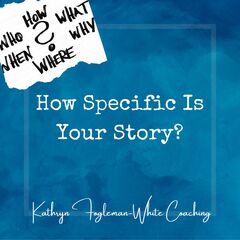
Recommended Books (with Amazon Affiliate links)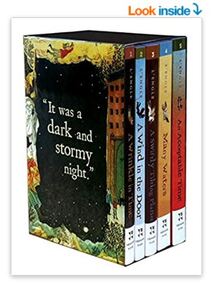 Even though I have yet to read the entire series, the first book - A Wrinkle In Time - does an excellent job of answering the basic Who, What, When, Where, Why, & How in the very first chapter. It makes the protagonist clear, the plot forces the protagonist to change and do things she normally wouldn't, it identifies both the external and internal conflict the protagonist must face, and it especially does a great job of showing you her desire and how she needs to change before the story ends. And, of course, while she is still the same little girl, she has grown and changed for the better by the end of the book. What is your next step as a writer?Is this overwhelming? Does the idea of writing a pager turner sound impossible? Do you want to be the author of the next best seller, but fear you won't meet your goals and expectations?
I'm hear to help. You can subscribe HERE and receive access to several free PDF books that will walk you through the steps of writing a compelling story with dynamic characters, PLUS be the first to get access to any coaching openings in my schedule! |
The beasts of the field shall honour me, the dragons and the owls. - Isaiah 43:20
The AuthorKathryn WhiteSelf-published author of the fantasy series, Tales of the Wovlen, Kathryn spends a great deal of time in the world of her imagination, having tea with fire breathing dragons, writing books on flying space ships, and practicing her mad scientist laugh with gusto. However, on occasion, she returns to this world just to play with her dog, blog about her fun, and coach people through writing self-doubt. My First BookMy Latest BookConsider buying my books, or other books, using my affiliate links:
Never Miss a Post! Sign up for my Newsletter here!Archives
January 2024
Categories
All
|

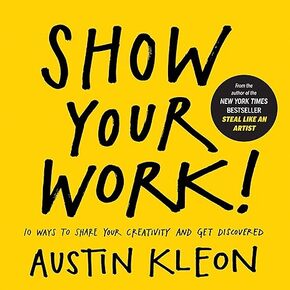
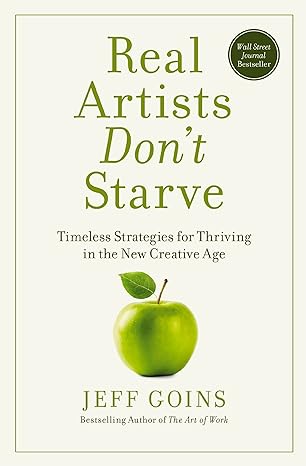



















 RSS Feed
RSS Feed
